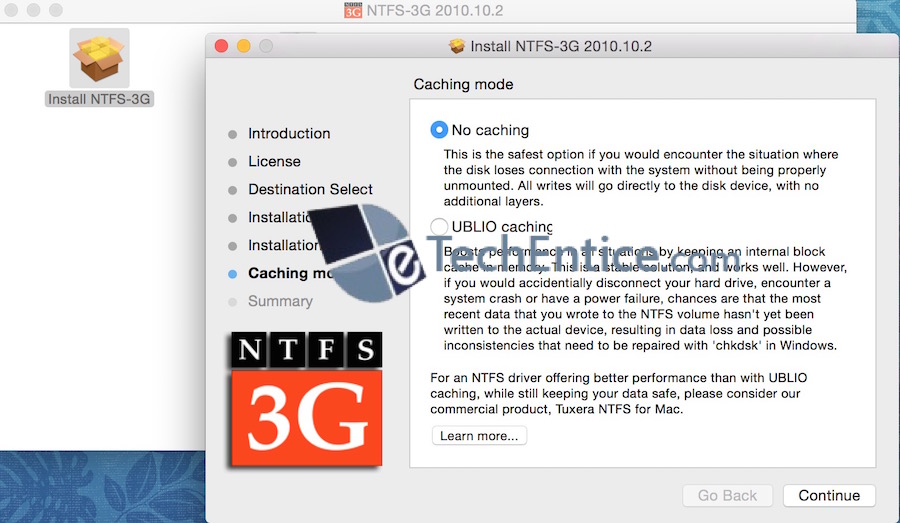


The AES-CFB8 standard requires that each byte of plaintext, like a password, must have a randomized initialization vector (IV) so that passwords can’t be guessed. AnalysisĬVE-2020-1472 is a privilege escalation vulnerability due to the insecure usage of AES-CFB8 encryption for Netlogon sessions. This disclosure follows a previous Netlogon related vulnerability, CVE-2019-1424, which Secura detailed at the end of last year.
#INSTALL NTFS 3G MAC PATCH#
Zerologon was patched by Microsoft in the August Patch Tuesday round of updates. On September 11, researchers at Secura published a blog post for a critical vulnerability they’ve dubbed “Zerologon.” The blog post contains a whitepaper explaining the full impact and execution of the vulnerability, identified as CVE-2020-1472, which received a CVSSv3 score of 10.0, the maximum score. Update: October 02, 2020: The ‘Identifying Affected Systems’ section has been updated to highlight the release of the Zerologon scan template for Nessus and Tenable.io.

Update: September 21, 2020: The ‘Identifying Affected Systems’ section has been updated to include instructions for our new unauthenticated check for Zerologon. Security researchers reveal how the cryptographic authentication scheme in Netlogon can be exploited to take control of a Windows domain controller (DC).


 0 kommentar(er)
0 kommentar(er)
